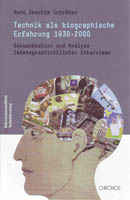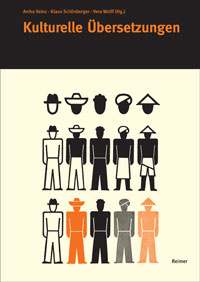Universität Siegen/ SFB Medienumbrüche: Social Web – Towards Networked Protest Politics?
Anfang November findet in Siegen eine Tagung zum Verhältnis von Medienkultur und Protest statt. Mit von der Partie ist auch die Luzerner Kulturwissenschaftlerin Marion Hamm, Associate am Forschungskolleg Kulturwissenschaftliche Technikforschung: "Doing Media: The Production of Transnational Communication Spaces in Social Movements – Ethnographic Reflections."
7.-8. November 2008
University of Siegen, Artur-Woll-Haus
SFB/FK615 Media Upheavals
Project: Changing Protest and Media Cultures (Prof. Dr. Baringhorst)
Protest politics on web 2.0 – simply new wine in old bottles or is it a new politics of protest? Has the introduction and spread of web 2.0 technologies led to the emergence of a new mode of protest politics, one based on newly structured networks and the increase of participatory values? How can we assess the impact of web 2.0 in terms of issue framing, collective action repertoires, shifting notions of the public and private, as well as new organisational structures? How do these new formats of web-based social interaction change patterns of internal and external social movement communication? How and to what extent do they effect the formation of collective identities, while offering new arenas of global civil society and transnational democracy? This conference provides an opportunity for researchers to share and debate perspectives of protest politics in the age of web 2.0.
The first panel discusses the interrelations between the use of the Internet and the organisations, campaigns and networks of social movements. The import of protest networks and their campaigns to new governance structures lead to us to questions, in general, of the democratic legitimacy of political protest actors, but also of the particular aspects of internal democratic decision-making processes. Beyond questions of internal organisation and communication among protest actors, this panel deals with new forms of political mobilisation, highlighting the potential avenues and problems of online-offline connectivities.
Debates upon social movement across virtualised networks are central to the second panel, which will raise questions of community building and collective identity. How does the use of web 2.0 applications by protest actors change processes of community and collective identity formation? In other words, what are the social implications of the supposed ‘social web’ for protest politics?
The third panel will examine processes of transnationalisation in terms of communication. Computer mediated communication is often purported to promote processes of deterritorialization, and to open avenues for globalization and/or glocalization. Does virtualised communication indeed close the North-South divide, and build bridges between geographically dispersed subjects?
The forth panel engages the overall contribution of virtualised protest politics upon processes of (transnational) democratisation. Discussion will highlight the role of civil society actors in the formation of public sphere(s) beyond nation-state borders.
FRIDAY
|| PANEL 1: Virtualized Networks, Social Movements & Campaigns
10.30 – 11.00
Keynote by Dieter Rucht (Berlin, Germany): Protest Mobilization in the Age of Social Web
11.00 – 12.30
Patrick P. Meier (Cambridge, USA): Towards Networked Political Protests: An Empirical Analysis
Ralf Lindner (Karlsruhe, Germany): Models of Democracy and Internet-based Communication: How Ideological Orientations Shape the Online-Strategies of Parties and Interest Groups
Giovanni Navarria (London, UK): MoveOn and the Travel Tax: A Tale of Two Petitions in the World of Web 2.0
12.30 – 13.30
Lunch Break
13:30 – 15.00
Edouard Morena (London, UK): Virtualized Networks and their Effects in a Trade Union Context: The Case of the Confédération Paysanne
François Briatte (Grenoble, France): Network Campaigning over Copyright Issues in France
Francesca Forno (Bergamo, Italy):The Structure of the Italian Political Consumerist Mobilization on the Web
15.00 – 15.30
Coffee Break
|| PANEL 2: Virtualized Networks & Community
15.30 – 16.00
Keynote by Richard Rogers (Amsterdam, Netherlands): Methods for the Study of the Circulation of Protest Content in (Virtual) Networks?
16.00 – 18.00
Myra von Ondarza (Berlin, Germany):The Euroblogosphere: Advent of a Social Movement or Source for Expert Information?
Andreas Jungherr (Mainz, Germany): Twittering Activists: The Uses of Twitter for Political Activism
Christina Neumeyer and Celina Raffl (Salzburg, Austria): Facebook for Protest? Assessing the Potential of Social Software for Political Activism Exemplified on the FARC Countermovement
Azi Lev-On (Ariel, Israel): Social Movements and the Web 2.0 Phenomenon: Conceptual Links
SATURDAY
|| PANEL 3: Virtualized Networks & Transnationalism
09.00 – 09.30
Keynote by Peter J. Smith and Elizabeth Smythe(Athabasca/Edmonton, Canada): The Impact of Social Networking on Transnational Activism: More Orchestrated Campaigns or just Karaoke?
09.30 – 10.30
Uwe Hunger and Kathrin Kissau (Münster, Germany): Political Online-Participation of Ethnic Communities
Jae Seung Moon (Singapore): The Transnational Network and its Impact on the Social Movement: Overseas Filipino Workers Activism and Homeland Filipino Politics
10.30 – 10.45
Coffee Break
10.45 – 12.15
Marion Hamm (Luzern, Switzerland): Doing Media: The Production of Transnational Communication Spaces in Social Movements – Ethnographic Reflections
Fidele Vlavo (London, UK): Deterriorializing Political Activism: A Critical Analysis
Angela Crack (Liverpool, UK): Virtual Networks: Interrogating the Social Foundations of a Transnational Public Sphere
12.15 – 13.15
Lunch Break
|| PANEL 4: Virtualized Networks & Democracy
13.15 – 13.45
Keynote by James Bohman (St. Louis, USA): Networked Publics and Democratization: From Communicative Freedom to Communicative Power
13.45 – 15.15
Jarmo Rinne (Tampere, Finland): Self-Expression as Political Act: Building 'Virtual Tables' on the Web
Caja Thimm (Bonn, Germany): On the Way to Virtual Democracy Avatar in 'Second Life'
Mundo Yang (Berlin, Germany): A Structural Transformation of the Internet? A Cultural Critique of Web 2.0
15.15 – 15.45
Coffee Break
15.45 – 17.30
Malte Härtig, Thomas Loer, Matthias Kettner, Gesine Stern, Melchior Walker (Witten, Germany): 'In what kind of society do you want to live?' On Representing Net-based Public Debate as Democratic Deliberation
Henri Beunders and Arthur Edwards (Rotterdam, Netherlands): New Web Technologies, Micro-Mobilization and Public Spheres: Framing Processes on Climate Change
Tapio Häyhtiö and Jarmo Rinne (Tampere, Finland): Virtualized Civic Activities as Deliberation and Protest: Administrational and Actionist Citizenship
|| REGISTRATION
Registration fees for the conference are €25 for one day and €50 for the complete conference. Please note that all participants are required to pay the registration fee. Bank details are provided below. This fee includes meals for the duration of the conference. In order to register, please email your name and institutional affiliation to protest-cultures[at]uni-siegen.de.
7.-8. November 2008
University of Siegen, Artur-Woll-Haus
SFB/FK615 Media Upheavals
Project: Changing Protest and Media Cultures (Prof. Dr. Baringhorst)
Protest politics on web 2.0 – simply new wine in old bottles or is it a new politics of protest? Has the introduction and spread of web 2.0 technologies led to the emergence of a new mode of protest politics, one based on newly structured networks and the increase of participatory values? How can we assess the impact of web 2.0 in terms of issue framing, collective action repertoires, shifting notions of the public and private, as well as new organisational structures? How do these new formats of web-based social interaction change patterns of internal and external social movement communication? How and to what extent do they effect the formation of collective identities, while offering new arenas of global civil society and transnational democracy? This conference provides an opportunity for researchers to share and debate perspectives of protest politics in the age of web 2.0.
The first panel discusses the interrelations between the use of the Internet and the organisations, campaigns and networks of social movements. The import of protest networks and their campaigns to new governance structures lead to us to questions, in general, of the democratic legitimacy of political protest actors, but also of the particular aspects of internal democratic decision-making processes. Beyond questions of internal organisation and communication among protest actors, this panel deals with new forms of political mobilisation, highlighting the potential avenues and problems of online-offline connectivities.
Debates upon social movement across virtualised networks are central to the second panel, which will raise questions of community building and collective identity. How does the use of web 2.0 applications by protest actors change processes of community and collective identity formation? In other words, what are the social implications of the supposed ‘social web’ for protest politics?
The third panel will examine processes of transnationalisation in terms of communication. Computer mediated communication is often purported to promote processes of deterritorialization, and to open avenues for globalization and/or glocalization. Does virtualised communication indeed close the North-South divide, and build bridges between geographically dispersed subjects?
The forth panel engages the overall contribution of virtualised protest politics upon processes of (transnational) democratisation. Discussion will highlight the role of civil society actors in the formation of public sphere(s) beyond nation-state borders.
FRIDAY
|| PANEL 1: Virtualized Networks, Social Movements & Campaigns
10.30 – 11.00
Keynote by Dieter Rucht (Berlin, Germany): Protest Mobilization in the Age of Social Web
11.00 – 12.30
Patrick P. Meier (Cambridge, USA): Towards Networked Political Protests: An Empirical Analysis
Ralf Lindner (Karlsruhe, Germany): Models of Democracy and Internet-based Communication: How Ideological Orientations Shape the Online-Strategies of Parties and Interest Groups
Giovanni Navarria (London, UK): MoveOn and the Travel Tax: A Tale of Two Petitions in the World of Web 2.0
12.30 – 13.30
Lunch Break
13:30 – 15.00
Edouard Morena (London, UK): Virtualized Networks and their Effects in a Trade Union Context: The Case of the Confédération Paysanne
François Briatte (Grenoble, France): Network Campaigning over Copyright Issues in France
Francesca Forno (Bergamo, Italy):The Structure of the Italian Political Consumerist Mobilization on the Web
15.00 – 15.30
Coffee Break
|| PANEL 2: Virtualized Networks & Community
15.30 – 16.00
Keynote by Richard Rogers (Amsterdam, Netherlands): Methods for the Study of the Circulation of Protest Content in (Virtual) Networks?
16.00 – 18.00
Myra von Ondarza (Berlin, Germany):The Euroblogosphere: Advent of a Social Movement or Source for Expert Information?
Andreas Jungherr (Mainz, Germany): Twittering Activists: The Uses of Twitter for Political Activism
Christina Neumeyer and Celina Raffl (Salzburg, Austria): Facebook for Protest? Assessing the Potential of Social Software for Political Activism Exemplified on the FARC Countermovement
Azi Lev-On (Ariel, Israel): Social Movements and the Web 2.0 Phenomenon: Conceptual Links
SATURDAY
|| PANEL 3: Virtualized Networks & Transnationalism
09.00 – 09.30
Keynote by Peter J. Smith and Elizabeth Smythe(Athabasca/Edmonton, Canada): The Impact of Social Networking on Transnational Activism: More Orchestrated Campaigns or just Karaoke?
09.30 – 10.30
Uwe Hunger and Kathrin Kissau (Münster, Germany): Political Online-Participation of Ethnic Communities
Jae Seung Moon (Singapore): The Transnational Network and its Impact on the Social Movement: Overseas Filipino Workers Activism and Homeland Filipino Politics
10.30 – 10.45
Coffee Break
10.45 – 12.15
Marion Hamm (Luzern, Switzerland): Doing Media: The Production of Transnational Communication Spaces in Social Movements – Ethnographic Reflections
Fidele Vlavo (London, UK): Deterriorializing Political Activism: A Critical Analysis
Angela Crack (Liverpool, UK): Virtual Networks: Interrogating the Social Foundations of a Transnational Public Sphere
12.15 – 13.15
Lunch Break
|| PANEL 4: Virtualized Networks & Democracy
13.15 – 13.45
Keynote by James Bohman (St. Louis, USA): Networked Publics and Democratization: From Communicative Freedom to Communicative Power
13.45 – 15.15
Jarmo Rinne (Tampere, Finland): Self-Expression as Political Act: Building 'Virtual Tables' on the Web
Caja Thimm (Bonn, Germany): On the Way to Virtual Democracy Avatar in 'Second Life'
Mundo Yang (Berlin, Germany): A Structural Transformation of the Internet? A Cultural Critique of Web 2.0
15.15 – 15.45
Coffee Break
15.45 – 17.30
Malte Härtig, Thomas Loer, Matthias Kettner, Gesine Stern, Melchior Walker (Witten, Germany): 'In what kind of society do you want to live?' On Representing Net-based Public Debate as Democratic Deliberation
Henri Beunders and Arthur Edwards (Rotterdam, Netherlands): New Web Technologies, Micro-Mobilization and Public Spheres: Framing Processes on Climate Change
Tapio Häyhtiö and Jarmo Rinne (Tampere, Finland): Virtualized Civic Activities as Deliberation and Protest: Administrational and Actionist Citizenship
|| REGISTRATION
Registration fees for the conference are €25 for one day and €50 for the complete conference. Please note that all participants are required to pay the registration fee. Bank details are provided below. This fee includes meals for the duration of the conference. In order to register, please email your name and institutional affiliation to protest-cultures[at]uni-siegen.de.
kschoenberger - 14. Okt, 17:39
















Trackback URL:
https://technikforschung.twoday.net/stories/5255377/modTrackback